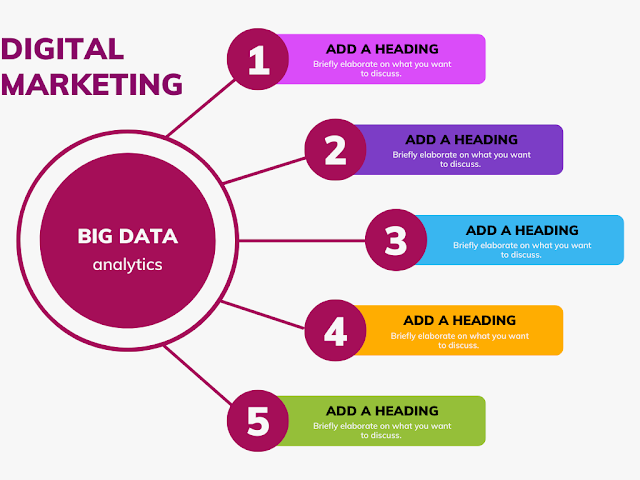Benefits of cloud computing for
business include:
Scalability: Cloud computing allows businesses to easily
scale up or down their computing resources as needed, without the need for
significant upfront investments.
Cost savings: Cloud computing can reduce the costs
associated with maintaining and upgrading on-premises infrastructure.
Flexibility: Cloud computing allows employees to access
business applications and data from anywhere with an internet connection,
increasing productivity and enabling remote work.
Automatic software updates: Cloud computing providers often
handle software updates automatically, ensuring that businesses are always
running the latest version of a given application.
Improved disaster recovery: Cloud computing providers often
have built-in disaster recovery features that make it easy for businesses to
recover from outages and other disruptions.
Drawbacks of cloud computing for business include:
Security concerns: Businesses may be concerned about the
security of their data when it is stored on a third-party server.
Dependence on internet connectivity: Businesses that rely on
cloud computing may experience disruptions if their internet connection goes
down.
Limited control: Businesses may have less control over their
computing resources when they are using cloud computing services.
Cost: Businesses may incur additional costs if they
experience unexpected spikes in usage or need to scale up their resources
rapidly.
Vendor Lock-in: Businesses may find themselves dependent on
a single provider and may face difficulty if they want to switch providers
Cloud computing has become a popular choice for businesses
of all sizes, as it offers a number of benefits that can help companies to grow
and become more efficient. However, there are also some drawbacks to cloud
computing that businesses should be aware of. In this article, we will take a
closer look at the benefits and drawbacks of cloud computing for businesses,
and help you to decide whether this technology is right for your organization.
Benefits of Cloud Computing for Business
Scalability: One of the main benefits of cloud computing is
that it allows businesses to easily scale up or down their computing resources
as needed. This means that if a business experiences unexpected growth, it can
easily add more computing resources without the need for significant upfront
investments. On the other hand, if a business is experiencing a downturn, it
can scale down its resources to reduce costs.
Cost savings: Cloud computing can also help businesses to
save money in the long run. By using cloud computing services, businesses can
reduce the costs associated with maintaining and upgrading on-premises
infrastructure. In addition, businesses can also save money by only paying for
the resources that they need, rather than having to invest in expensive hardware
and software.
Flexibility: Another benefit of cloud computing is that it
allows employees to access business applications and data from anywhere with an
internet connection. This increases productivity and enables remote work, which
can be especially useful for businesses that have a geographically dispersed
workforce.
Automatic software updates: Cloud computing providers often
handle software updates automatically, ensuring that businesses are always
running the latest version of a given application. This can help businesses to
stay competitive and take advantage of new features and capabilities as they
become available.
Improved disaster recovery: Cloud computing providers often
have built-in disaster recovery features that make it easy for businesses to
recover from outages and other disruptions. This can help businesses to
minimize downtime and keep their operations running smoothly.
Drawbacks of Cloud Computing for Business
Security concerns: One of the main drawbacks of cloud
computing is that businesses may be concerned about the security of their data
when it is stored on a third-party server. While cloud computing providers have
security measures in place to protect data, businesses may still be at risk of
data breaches and other security threats.
Dependence on internet connectivity: Another drawback of
cloud computing is that businesses that rely on it may experience disruptions
if their internet connection goes down. This can make it difficult for
businesses to access their data and applications, which can result in lost
productivity and revenue.
Limited control: Businesses may also have less control over
their computing resources when they are using cloud computing services. This
can make it difficult for businesses to customize their environment to meet
their specific needs.
Cost: Businesses may also incur additional costs if they
experience unexpected spikes in usage or need to scale up their resources
rapidly. This can make it difficult for businesses to accurately predict and
budget for their computing costs.
Vendor lock-in: Businesses may find themselves dependent on
a single provider and may face difficulty if they want to switch providers.
This can make it difficult for businesses to take advantage of new features and
capabilities offered by other providers, or to negotiate better terms for their
service.
Conclusion
Cloud computing can be a powerful tool for businesses, but
it is not without its drawbacks. Businesses should carefully consider the
benefits and drawbacks of cloud computing before making a decision about
whether to adopt this technology. By understanding the potential risks and
benefits of cloud computing, businesses can make an informed decision about
whether this technology is right for their organization.
In a nutshell, cloud computing is an amazing technology that
can offer a lot of benefits to businesses of





Comments
Post a Comment